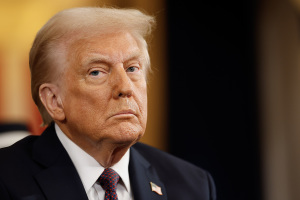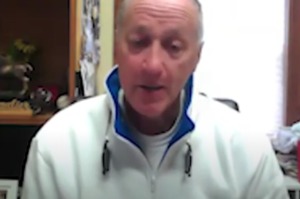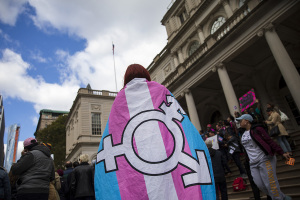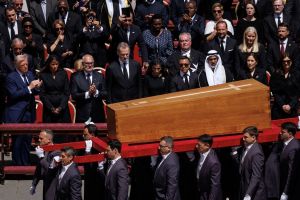Trump to Evangelicals: If Democrats Win, You'll Lose 'Everything That We've Done ... Violently'
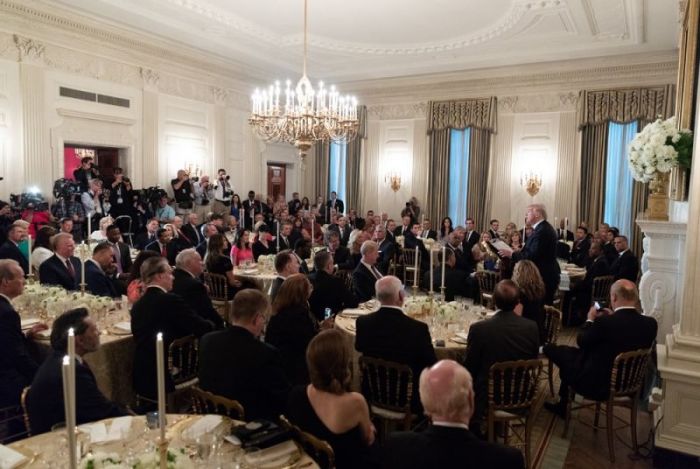
President Donald Trump warned evangelical supporters Monday night that the midterm elections this November will be a "referendum" on their religion and religious freedom.
Speaking during a portion of Monday's White House dinner with about 100 evangelical pastors, evangelists and activists that was closed to the press, the president reportedly stressed about the implications of Democrats having success in the 2018 congressional elections.
"This November 6 election is very much a referendum on not only me, it's a referendum on your religion, it's a referendum on free speech and the First Amendment," Trump said, according to a recording of the conversation obtained by CNN. "It's a referendum on so much."
Trump continued to say that it is "not a question of like or dislike" but a question of whether "they will overturn everything that we've done and they will do it quickly and violently."
"And violently. There is violence," Trump added. "When you look at Antifa — these are violent people."
Trump told the conservative evangelical leaders that they have "tremendous power."
"You were saying, in this room, you have people who preach to almost 200 million people," Trump said. "Depending on which Sunday we're talking about."
Attendees previously told The Christian Post that Trump opened up the microphone to any attendee who wanted to share their thoughts during the dinner.
For over a half-an-hour, about a dozen or more leaders stood up to speak about the accomplishments of the Trump administration and why they were encouraged by the administration's promotion of pro-life policy, religious freedom initiatives and other items on the social conservative agenda.
Some also reportedly voiced the need for conservative evangelicals to be vigilant in November.
Although exit polls showed that 81 percent of self-identified white evangelicals voted for Trump in the 2016 presidential election, progress they've enjoyed in the first 18 months of the Trump presidency could be lost if they same enthusiasm isn't shown in congressional races this November to protect the slim conservative majority in the Senate.
"We need to maintain our vigilance in the upcoming days. The concern is that this is a spiritual warfare, this is a battle and ultimately battle is won on our knees," former Southern Baptist Convention president and dinner attendee Jack Graham told CP Tuesday night. "It is very clear, we voiced to the president that we need to pray, pray for him, pray for our country."
Dr. James Dobson, founder of Focus on the Family and Family Talk radio, told CP Tuesday night in a statement that many in attendance "pledged their intention to help get out the vote for the midterm elections."
Trump's closed-door comments have also drawn the ire of some on the left because of his mention of Antifa — a movement of anti-fascist militant groups known for disrupting public demonstrations of groups they deem to be fascist — and his claim that left will turn to violence if they win the midterms.
Many in the left-leaning mainstream media accused the president of things like trafficking conspiracy theories or appealing to racism.
"This is about black versus white," CNN pundit Jeffrey Toobin claimed Tuesday night. "This is about Donald Trump's appeal to racism and it just happens all the time. And we never say it — we don't say it enough for what it is, but that's what's going on here."
Antifa groups are known for opposing white nationalist and white supremacists groups, but have also counter-protested pro-Trump and free speech rallies that have been held throughout the nation.
In some cases, the tension at these events has led to violence clashes erupting between the Antifa groups and far-right groups and individuals.
Antifa groups primarily consist of members who claim to be socialists, communists or anarchists, according to Mark Bray, a historian of human rights, terrorism and political radicalism.
An Antifa rally outside the White House was held earlier this month in which a number of participants threatened to harm the president.
Trump also drew critics and even lost an informal evangelical adviser last August when he said there was "blame on both sides" — referring to Antifa groups — after a white supremacist killed a counter protester and injured others during a Charlottesville, Virginia, Unite the Right rally.
















